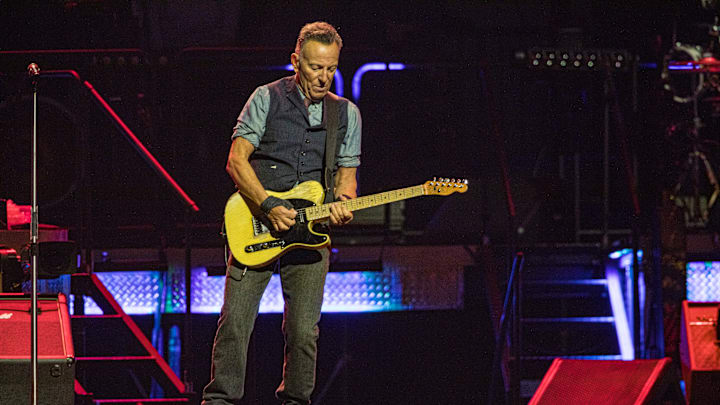"The Boss" Bruce Springsteen staged a remarkable comeback to the spotlight last week in Phoenix, as he reunited with the E Street Band to kick off their global tour following a six-month hiatus attributed to the singer's struggle with peptic ulcer disease. However, in a candid conversation with Jim Rotolo on E Street Radio, the 74-year-old rock legend disclosed moments of doubt when he feared he might never grace the stage again.
Note: This interview may contain a few swear words:
Reflecting on his ordeal, Springsteen shared that once he began singing again, he realized the stark difference between rehearsing and performing live. The surge of adrenaline that fuels a live performance was absent during rehearsals. The stomach ailment that prompted the hiatus severely impacted his ability to sing. As he elaborated, singing relies heavily on your diaphragm, and his was agonizingly painful due to the stomach issue.
"My diaphragm was hurting so badly that when I went to make the effort to sing, it was killing me, you know? So, I literally couldn’t sing at all and that lasted for two or three months, along with just a myriad of other painful problems… you’re thinking like, ‘Hey, am I gonna sing again?’"
Bruce Springteen on getting better, the importance of medical care
At one point, uncertainty loomed over whether he could ever reclaim his trademark high-energy performance style, which is important. There was a period where doubts crept in. Before assurances from people around him that it would pass and he'd be okay, he questioned if I'd ever sing again. Performing is what the occasional chart-topping Bruce Springsteen cherishes the most musically, and not being able to do it was surely disheartening.
It took time for the doctors to offer reassurance, but eventually, with the aid of exceptional medical professionals, he found relief and healing. On that note, reassurances can indeed be valuable. Stanford psychologists have found that "being reassured by a medical professional can aid in the healing process," as one article explains: "For many conditions, the simple act of being reassured by a medical professional can aid in the healing process, and we needn’t always rely on medication and procedures to make us feel better..."
Grateful for the support of his medical team, Springsteen triumphantly returned to the stage in Phoenix on March 19, powering through a marathon set of 29 songs without mentioning his medical ordeal until the very end. He battled a hell of a stomach ache, he casually informed the audience towards the conclusion of the nearly three-hour performance. With the tour now back in full swing, Springsteen and the E Street Band are set to electrify audiences for the foreseeable future.
